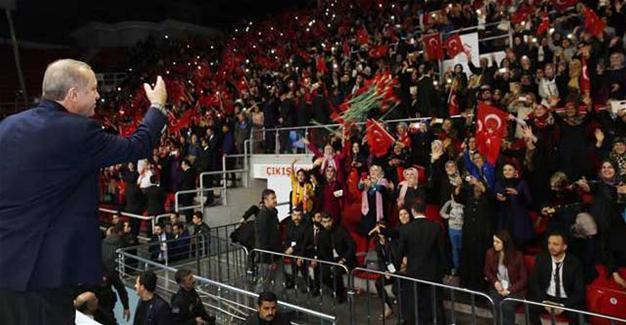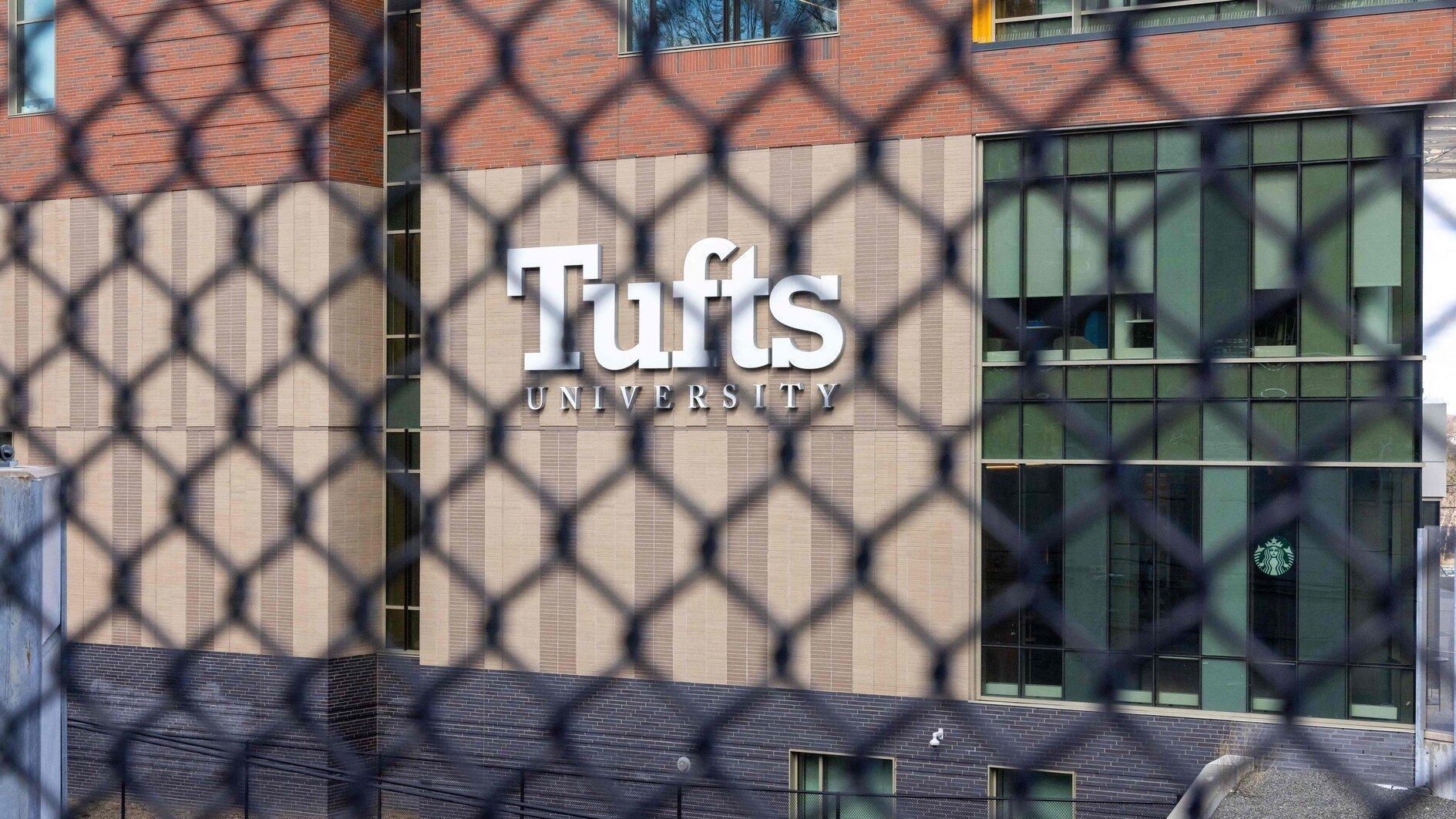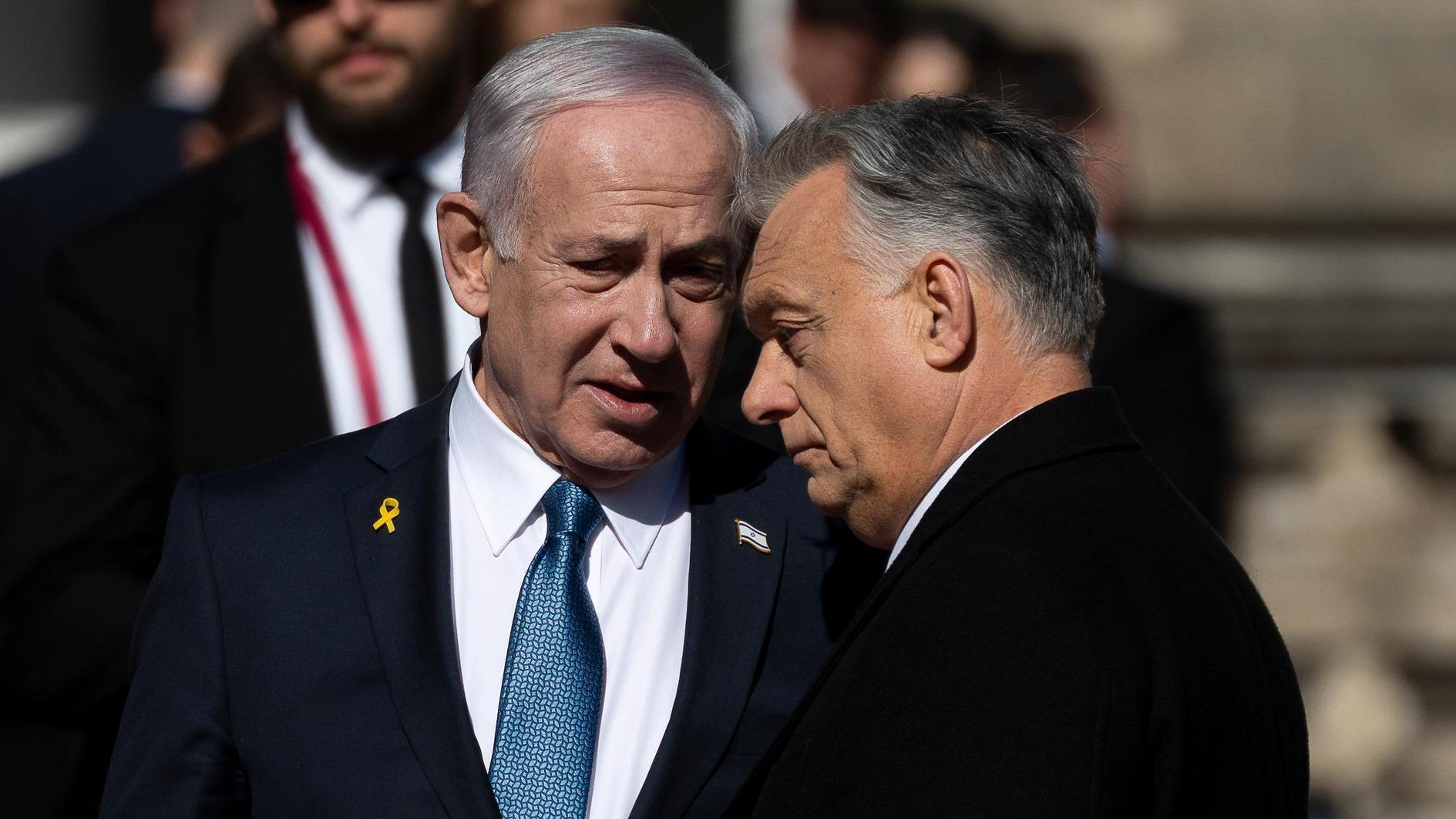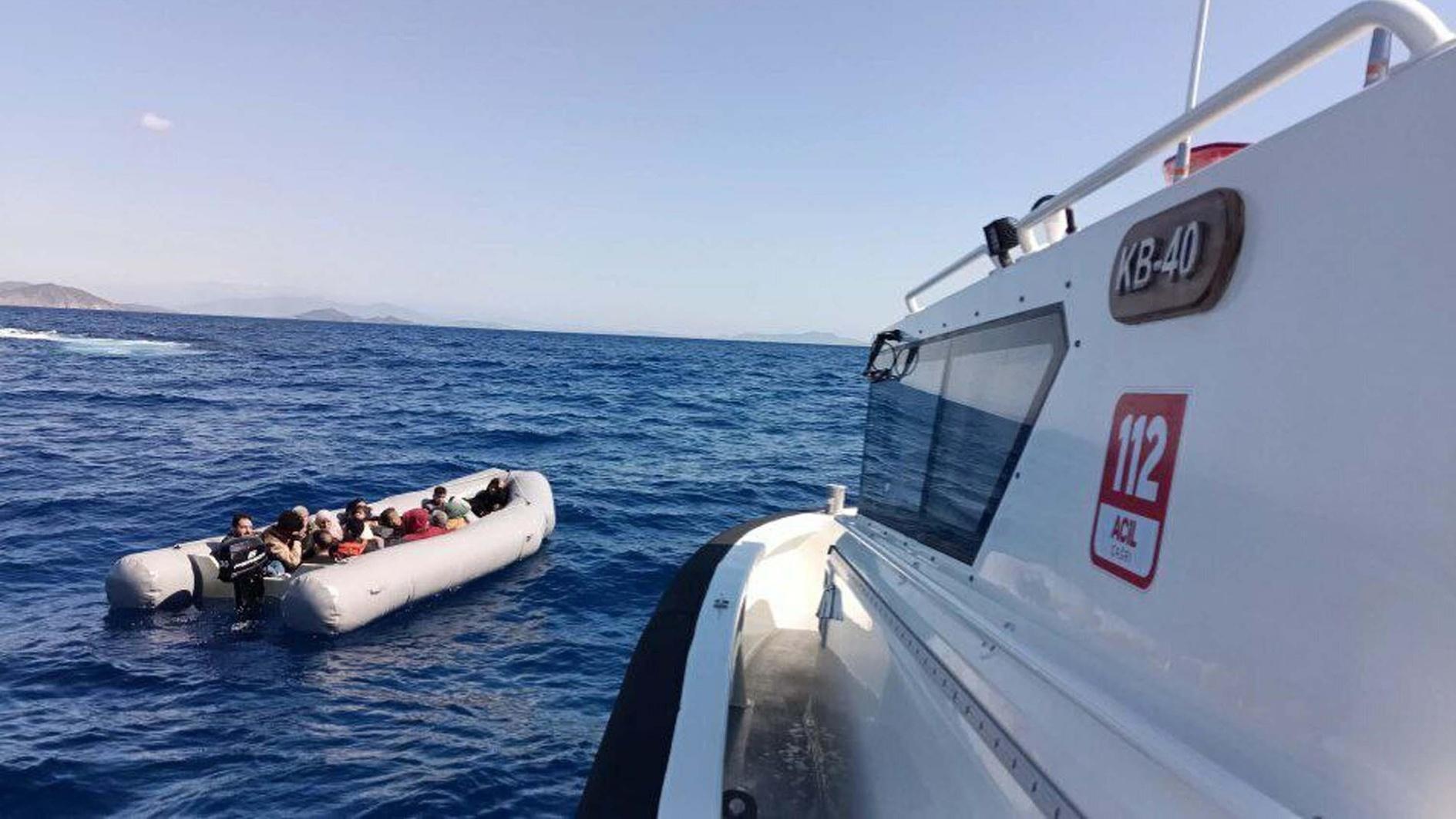Erdoğan likens German bans to ‘Nazi period’ as efforts to resolve crisis continue
ANKARA
 Turkish President Recep Tayyip Erdoğan has likened the German authorities’ barring of Turkish politicians from meetings in Germany to the actions of the “Nazi period,” as joint diplomatic efforts to resolve the crisis between Ankara and Berlin continue.
Turkish President Recep Tayyip Erdoğan has likened the German authorities’ barring of Turkish politicians from meetings in Germany to the actions of the “Nazi period,” as joint diplomatic efforts to resolve the crisis between Ankara and Berlin continue. “Germany, you have no relation whatsoever to democracy. You should know that your current actions are no different to those of the Nazi period. They get disturbed when we say this. Why are you disturbed?” Erdoğan said in an address in Istanbul on March 5.
Relations between the two countries lurched further into crisis after the cancellation of government members’ meetings with Turkish citizens in Germany in campaigning ahead of the April 16 referendum on shifting Turkey to an executive presidential system of government. Turkey reacted harshly against the cancellations and summoned the German ambassador to the Foreign Ministry in Ankara to express its disturbance.
The Turkish and German prime ministers spoke on the phone on March 4 to find a way to the problem but Erdoğan’s “Nazi period” comparison added a new dimension to the disagreement.
“I thought Germany left [Nazi practices] behind a long time ago. We are mistaken. You lecture us about democracy but then you don’t let this country’s ministers speak there,” Erdoğan said, vowing that the result in the upcoming referendum will be “Yes” “despite the negative stances of European countries” such as Germany, the Netherlands and Austria, which have all prohibited Turkish pro-government rallies in their territories.
“Do you think ‘No’ votes will prevail ahead of ‘Yes’ in ballot boxes in Germany if you don’t allow our ministers to campaign?” Erdoğan asked on March 5, speaking at a conference on the status of “women and democracy” in Istanbul.
Yıldırım–Merkel phone call
As the crisis escalated between the two countries over the weekend, Prime Minister Binali Yıldırım spoke on the phone with German Chancellor Angela Merkel on March 4, stating that the foreign ministers of the two countries would meet in person on March 8.
“We talked about the restrictions on the phone. It was a good and productive conversation. We’ll follow a different way for programs from now on,” Yıldırım said, while not giving details about the proposed means to resolve the issue.
In line with the Yıldırım-Merkel agreement, Foreign Minister Mevlüt Çavuşoğlu will come together with German counterpart Sigmar Gabriel on March 8.
Gabriel warned against stirring up tensions between the two countries, but also said Berlin would not refrain from criticism where warranted, on the eve of his planned meeting with Çavuşoğlu this week in Berlin.
“The German-Turkish friendship runs deeper than the diplomatic tensions we are experiencing today,” he wrote in an article published in the Bild am Sonntag newspaper on March 5. “We cannot allow hate and misunderstanding to grow out of political differences.”
Gabriel also stated that Turkish politicians who wanted to campaign in Germany should respect the “rules of law, as well as decency.”
Economy minister in Germany
Meanwhile, Economy Minister Nihat Zeybekçi departed for Germany on March 5 for his planned address to a Turkish community in western city of Cologne, despite the fact that the meeting was earlier cancelled due to security problems. Organizers subsequently hired a different hall in Cologne for the meeting.
“I don’t think there will be any problems. We’ll go there and meet our citizens,” Zeybekçi said before his departure. “We’ll share the truths we believe about this important process our country and our people are passing through.”
Germany is home to around three million Turkish nationals who have the right to vote in elections and referendums. Turkish politicians from all political parties have frequently traveled to Germany to attract votes, with both the ruling party and the opposition planning to hold dozens of meetings with their electorate until April polls.
The crisis was sparked after the municipality of Gaggenau in southwest Germany revoked its permission for Turkish Justice Minister Bekir Bozdağ’s meeting, citing concerns about overcrowding. This prompted Bozdağ to cancel his planned visit to Germany altogether.
German federal government or intelligence?
However, Bozdağ said on March 5 that his meeting was not cancelled by the municipality, hinting that the order came from either from federal government or the German intelligence organization.
“According to the information I received, the municipality had no intention to cancel the meeting. On the contrary, it carried out works for the realization of the meeting,” Bozdağ told reporters in the Central Anatolian town of Yozgat.
“Of course, it is the central government and the intelligence agency that know best whether or not the pressure for the cancellation came from them, but what I see is that it was not the decision of the municipality,” he added.
Bozdağ also said that the Gaggenau municipality was also “under the pressure of terror organizations,” saying the outlawed Kurdistan Workers’ Party (PKK), the Fethullahist Terror Organization (FETÖ) and the Revolutionary People’s Liberation Party-Front (DHKP-C) had freedom to continue their activities there.
“We are against terror, terrorism and terrorists. If there is any country protecting or harboring them it is Germany itself,” he added.
















